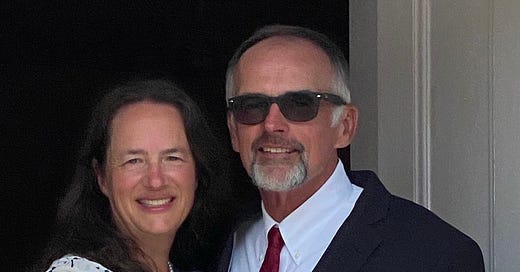
After making it clear that she would run her courtroom in the interests of justice without reference to the 2024 presidential election, U.S. District Judge Tanya Chutkan has set March 4, 2024, as the start date for former president Trump’s trial on four criminal counts for his efforts to overturn the results of the 2020 presidential election.
Those charges are not about anything Trump said. The 45-page indictment acknowledges Trump’s right to speak about the election and even to lie that he had won, and the Department of Justice did not charge him with incitement. The indictment charges Trump with being part of three conspiracies: one to defraud the United States by “using dishonesty, fraud, and deceit” to stop the lawful government function of determining the results of a presidential election, a second conspiracy to obstruct the lawful January 6 congressional proceeding to count and certify the results of the presidential election, and a third conspiracy to take away from other Americans “a right and privilege secured to them by the Constitution and laws of the United States—that is, the right to vote and to have one’s vote counted.”
Department of Justice special counsel Jack Smith’s office had asked the judge for a January 2 start date, saying the date “serves the public’s interest and the interests of justice, while also protecting the defendant’s rights and ability to prepare for trial.” (A Politico Magazine/Ipsos poll from August 18–21 bears out this position: it shows that 61% of the American people believe that Trump should go to trial for election subversion before the Republican primaries.)
Trump’s lawyers countered with a proposal to start the trial in April 2026, an extraordinary request that they attributed to the need to sift through enormous amounts of evidence—12.8 million pages worth—but which might well have been an attempt to get the judge to split the difference and give Trump a court date in 2025, after the 2024 election.
Trump has told his aides he intends to solve his legal problems by winning the next election.
Today, Department of Justice prosecutor Molly Gaston responded to Trump’s request by noting that 7.8 million pages of that material either came from Trump himself—tweets, for example—or from those associated with him, or had been public for months already. She noted that Trump’s lawyers themselves have publicly called the case a “regurgitation” of the report from the House Select Committee to Investigate the January 6th Attack on the U.S. Capitol, and noted that the Department of Justice had been careful to make sure the new material it provided is easy to review.
Trump lawyer Alina Habba didn’t help the Trump camp yesterday when she told Fox News Sunday that Trump wouldn’t need to prepare for his many legal cases because he’s “incredibly intelligent.” Nonetheless, Trump lawyer John Lauro used the March 4 trial date to begin laying the groundwork to argue he could not provide adequate representation.
Before she set the date, Chutkan said, she conferred with New York state judge Juan Merchan, who is set to preside over Trump’s trial for campaign violations when he paid hush money to an adult film actress to cover up an affair. That case is scheduled to start on March 25. Trump’s federal trial for his theft of national security documents and hiding them at Mar-a-Lago is currently scheduled to begin in May 2024.
The trial date on racketeering charges in Georgia for a conspiracy to overturn the results of the 2020 presidential election has not been set yet, but today the arraignment for all 19 defendants was set for September 6, 2023.
In the midst of all these court dates, Judge Chutkan’s establishment of March 4 for the federal trial over Trump’s attempt to overturn the results of the 2020 election means that Trump-appointed federal judge Aileen Cannon, who is overseeing the Mar-a-Lago documents trial and who seems eager to protect the former president, will have far less power to shape public perceptions of the cases against Trump. Los Angeles Times legal affairs columnist Harry Litman noted: “This is the centerpiece now of accountability for Trump, which is as it should be.”
Meanwhile, in an Atlanta courtroom, Trump’s chief of staff Mark Meadows took the stand to try to get charges against him as part of the Georgia indictments transferred to federal court with the ultimate goal of getting them dismissed. Meadows took the unusual step of testifying himself in the case, and he argued for a sweeping interpretation of a chief of staff’s official duties.
He claimed that it was his job as chief of staff to address anything that might distract Trump or divert his attention, and therefore his work to overturn the results of the 2020 presidential election fell within his job description. If so, his case belongs in federal court because federal officials are protected from state prosecution over things they did as part of their official duties. But working for a political campaign is explicitly not part of an officer’s duties: the Hatch Act prohibits federal officials from engaging in partisan activities while on duty.
U.S. District Court Judge Steve C. Jones said he would rule as quickly as he can after considering the arguments.
Three Republican false electors from Georgia have also asked to move their cases to federal court, arguing that they were acting at the direction of Trump and his people, who were agents of the federal government. So has lawyer Jeffrey Clark, who tried to take over the office of attorney general to push Trump’s claims that the election was stolen, and who was employed at the time by the Department of Justice.
Nicole Narea of Vox noted that dividing up the defendants in the Georgia indictments serves Trump’s case by slowing everything down as Fulton County district attorney Fani Willis has to prosecute each defendant separately. Cornell University law professor Randy Zelin told Narea that such a scenario will permit Trump’s lawyers to prepare their defense based on the previous cases. It is, he said, “a defense lawyer’s dream.”
Republicans are planning to stand behind Trump, echoing his lawyer’s argument that Trump is being prosecuted selectively because he is Biden’s political opponent. John Lauro called the case a “show trial,” suggesting Lauro does not see any reasonable likelihood that he can produce evidence to convince a jury Trump is not guilty.
Republicans in Congress appear to be in a similar place, apparently planning to defend Trump not by arguing he is not guilty, but by launching more investigations to tarnish Democrats, as they did with the investigation into Hillary Clinton’s emails and as Trump did in his attempt to get Ukraine president Voldymyr Zelensky to announce an investigation into President Biden’s son Hunter in 2019.
Representative Jim Jordan (R-OH), chair of the Judiciary Committee, has demanded that Fulton County, Georgia, district attorney Fani Willis turn over internal documents related to the grand jury’s indictment of Trump on racketeering charges, implying that they will show illegitimate coordination between her and the Department of Justice, when in fact federal and state prosecutors often confer on cases that involve both of their jurisdictions.
House Republicans also are moving forward on impeaching President Joe Biden, although there is no evidence that there are any grounds for such a proceeding. One Republican lawmaker told CNN’s Melanie Zanona: “There’s no evidence that Joe Biden got money, or…agreed to do something so that Hunter could get money…. And they can’t impeach without that evidence. And I don’t…think the evidence exists.”
But polls last spring indicated that the American people think the Republicans’ investigations are a waste of time. Now the lack of evidence for an impeachment inquiry makes some Republican lawmakers unwilling to vote for one, just as they were unwilling to vote to “expunge” the former president’s impeachments, recognizing that such votes might turn off some of their more moderate voters. So the extremists eager to run the playbook of using an investigation are talking about skipping a formal vote and just launching an inquiry without one.
Trump yesterday wrote on his social media network: “You don’t need a long INQUIRY to prove it, it’s already proven…. Either IMPEACH the BUM, or fade into OBLIVION. THEY DID IT TO US!”
But Republicans who jump on board this effort will be working against the American people. According to that Politico/Ipsos poll, 59% of Americans think the Justice Department decided to indict Trump after a fair evaluation of evidence and the law.
And the March 4 trial date means backing Trump for the Republican presidential nomination has a new pitfall. March 4 is the day before Super Tuesday, when more than a dozen states will hold Republican presidential primaries. Philip Bump of the Washington Post noted today that by mid-March, more than half the delegates allotted for the Republican nomination will have been assigned and, since the Republicans have designed their nomination process to consolidate quickly with winner-take-all primaries, Trump could win the Republican nomination in the midst of his trial for trying to overturn the foundational principle of our democracy.
March 4 is also a historically significant date. Until 1936 it was the date on which presidential inaugurations were held (unless it fell on Sunday, in which case the inauguration was moved to the following day, Monday, March 5). Lawmakers chose that date because it was the one on which, in 1789, the Constitution went into effect.
—
Notes:
https://storage.courtlistener.com/recap/gov.uscourts.dcd.258149/gov.uscourts.dcd.258149.39.0_2.pdf
https://www.justice.gov/storage/US_v_Trump_23_cr_257.pdf
https://storage.courtlistener.com/recap/gov.uscourts.dcd.258149/gov.uscourts.dcd.258149.23.0_5.pdf
https://www.nytimes.com/2023/08/21/us/politics/trump-jan-6-trial-date.html
https://talkingpointsmemo.com/live-blog/judge-chutkan-expected-to-set-trial-date-in-trump-jan-6-case
https://www.politico.com/news/2023/08/28/trump-trial-date-election-subversion-2020-00113186
https://www.cnn.com/2023/08/28/politics/mccarthy-biden-impeachment-strategy/index.html
https://www.vox.com/politics/23659090/house-republicans-hunter-biden-oversight-china-comer-jordan
https://www.washingtonpost.com/politics/2023/03/13/trump-desantis-republicans-delegates/
https://www.washingtonpost.com/politics/2023/08/28/trump-campaign-2024-trials/
https://www.ipsos.com/en-us/politico-indictment-august-2023
https://www.politico.com/news/2023/08/28/meadows-testimony-georgia-hearing-00113215
https://www.politico.com/news/2023/08/24/co-defendant-georgia-trump-indictment-00112932
https://www.vox.com/politics/2023/8/28/23849528/trump-georgia-mark-meadows-court-hearing
Twitter (X):
kyledcheney/status/1696156953200795878
kyledcheney/status/1696182590674174403
RonFilipkowski/status/1696196075470700660










I wonder if Chutkan realized the significance of March 4, 2024, being 235 years to the day when the US Constitution became the law of the land.
I don't know my history as well as I should, but didn't the Nuremberg trials demolish the argument that those who committed crimes in the performance of their "duties" were absolved of those crimes and that, instead, ruled that such perpetrators must be judged by their actions?